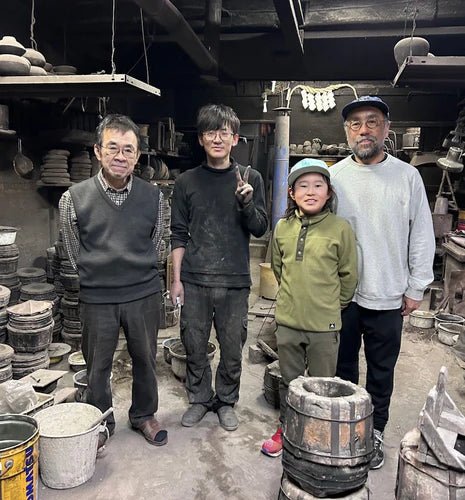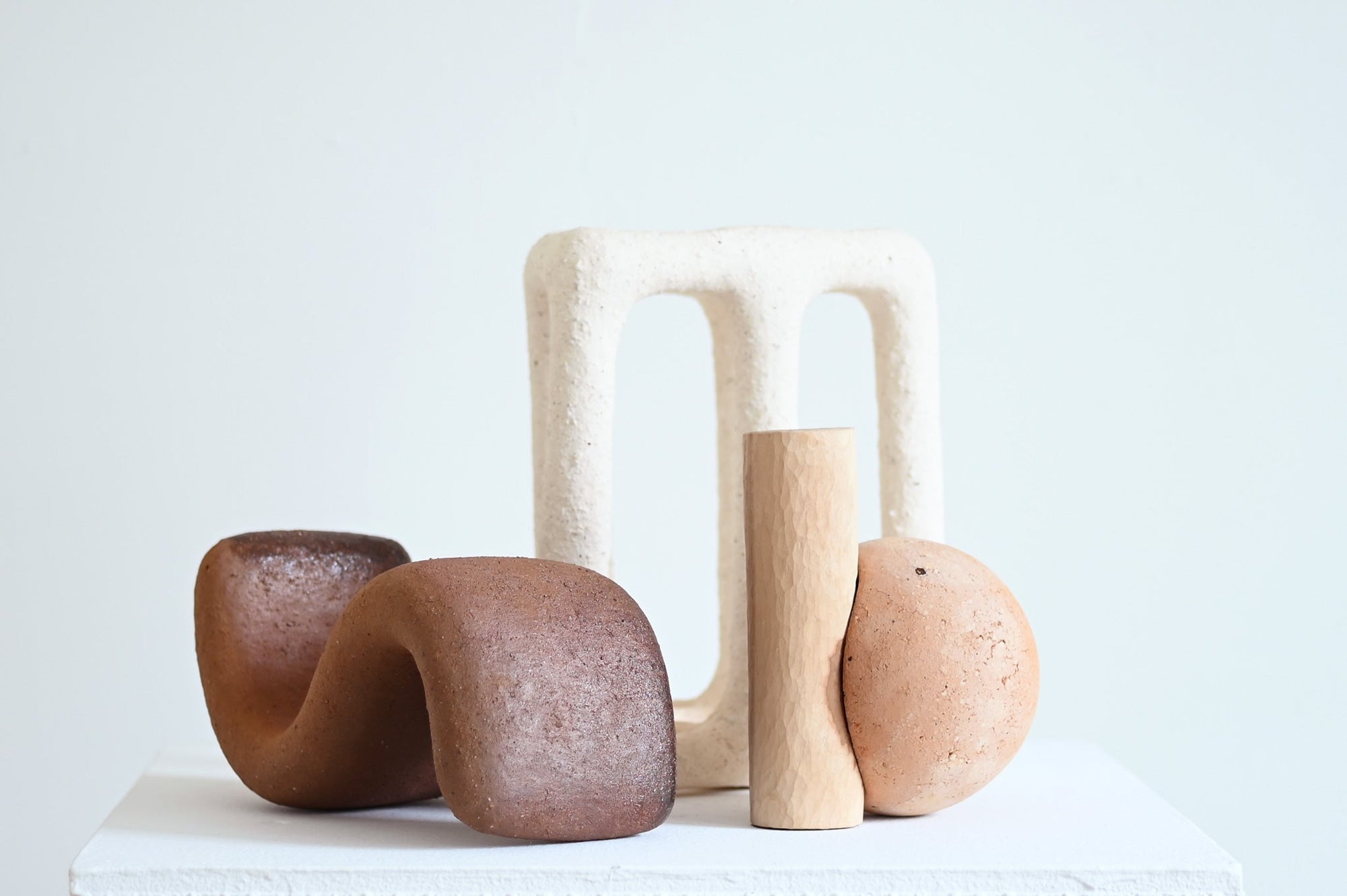After a 10-day trip to Chiapas Mexico, Shuko Clouse carefully unpacks her two large suitcases filled with beautiful weavings, clay objects and paper art thoughtfully sourced from over 20 small villages around San Cristobal de la Casas. A typical trip will require Shuko to visit three to four families a day to find these wares. Navigating the city by car, Shuko is warmly welcomed into multi-generational homes that double as studios where predominately female artisans impart the ongoing legacy of their indigenous craft. They share meals, stories and sometimes the family's entire wardrobe with Shuko, inviting her to be a caring and curious eye-witness to the incredible techniques and traditions behind each piece so she can pass the experience along to her customers back home.
Shuko's beautifully curated shop 'Mano del Sur' celebrates its three-year anniversary this month, and we're honored to announce Mano del Sur as our third Good Company event this year. Mano del Sur translates to 'hands of the south' and focuses on unique handcrafts from Central and South America. Shuko's initial spark for starting Mano del Sur was as much a journey of self discovery as it was a discovery of a new place that felt surprisingly like home. Learn more about Mano del Sur and about why Shuko is such Good Company by jumping to her interview down below.
TGS: Can you tell us what led you to start Mano del Sur?
SHUKO: Several years ago I visited Oaxaca, Mexico with my family. The trip introduced me to Mexico's indigenous culture and handcraft. Being Japanese, I felt a warm kinship to the indigenous people I was meeting–partly because I think we look quite similar! As a child, I grew up in the Japanese countryside, eating vegetables, making things from the dirt, and there was some intangible similarity between my life in Japan and theirs. After that trip, I visited Belize, Costa Rica and Guatemala, then traveled to the Mayan ruins. These subsequent trips made me want to start learning Spanish so I could communicate directly to the people I was fortunate enough to meet. I also began studying Mexican culture more seriously through regular cultural study tours to Chiapas and Oaxaca. Traveling so frequently, I'd often bring back gifts and a dear friend said to me, 'You find such great crafts on your trips. You should open a store.' The start of Mano del Sur began rather simply with these kind words from a friend–but in reality it was a gradual process over the course of years where I immersed myself in learning more about Mexico, Mexican culture and the rich handcraft traditions that I found there.
TGS: You just went on a 10-day trip to Chiapas, Mexico and you were excited to find things for this upcoming pop-up with Tortoise. What was your most recent trip like, and what are your trips like typically?
SHUKO: I landed in San Cristobal de las Casas where I stay in a house and travel around by car. Every day I visit three to four families. They're all family businesses or a co-op of several women in the same village that work together. I visit them at their home, and they're so welcoming. Finding items on this trip with Tortoise in mind was a fun experience because I selected items imagining what the Tortoise community would feel most excited to see. Personally I'm drawn to weavings, clay items and baskets–and I brought back many huipils, ceramics and even recycled paper crafts for next week's event. The paper crafts come from a studio with zero waste work. Absolutely no electricity is used there, and their work is made entirely from recycled paper, tree bark, plants and their hands–it's beautiful. I'm also going to show a special weaving from the only Tzotzil weaving community in the tropic lowlands, Carranza village, located in the southern part of Chiapas. Their work is so fine they split their thread into two to achieve a weaving so exquisite it's sheer. Their work is the kind worn by Mayan queens.
TGS: You travel alone for these visits, but do you have anything you need to take with you on your journey?
SHUKO: These trips can be quite physically demanding so I always bring with me some miso and umeboshi (laughs). Around four years ago on a trip, I got very sick and couldn't keep food down. I found a fermentation shop in San Cristobal de la Casas and got miso there. This helped me, and now I never go on a trip without a small tupperware of miso and umeboshi.
TGS: When Tortoise was on Abbot Kinney, you oversaw the gallery space. You have a great eye for craft and design, but you're also a talented and creative person. What do you enjoy making now, and how do you incorporate your creativity with Mano del Sur?
TGS: What do you hope for the future of Mano del Sur?
SHUKO: I want to keep learning from the artisans I meet and from my travels, and I'd like to help others learn more about Central and South America through Mano del Sur. There's power in connection, and I'd like to find more ways to support the indigenous people of Central and South America by connecting more people to the artisans I work with and encourage them to keep their traditions alive. Mano del Sur also currently supports two philanthropic organizations. The first is Mexican Dreamweavers, which sponsors a group of artisan weavers residing in a coastal village in Oaxaca. They often can't afford their materials and don't have an effective means to sell their work. Mano del Sur helps fund their work and also pays for their travel expenses to weaving events held both here in the U.S and in Mexico. We also support an organization called Oaxaca Street Children, which helps children from financially struggling families have better opportunities in the future.









